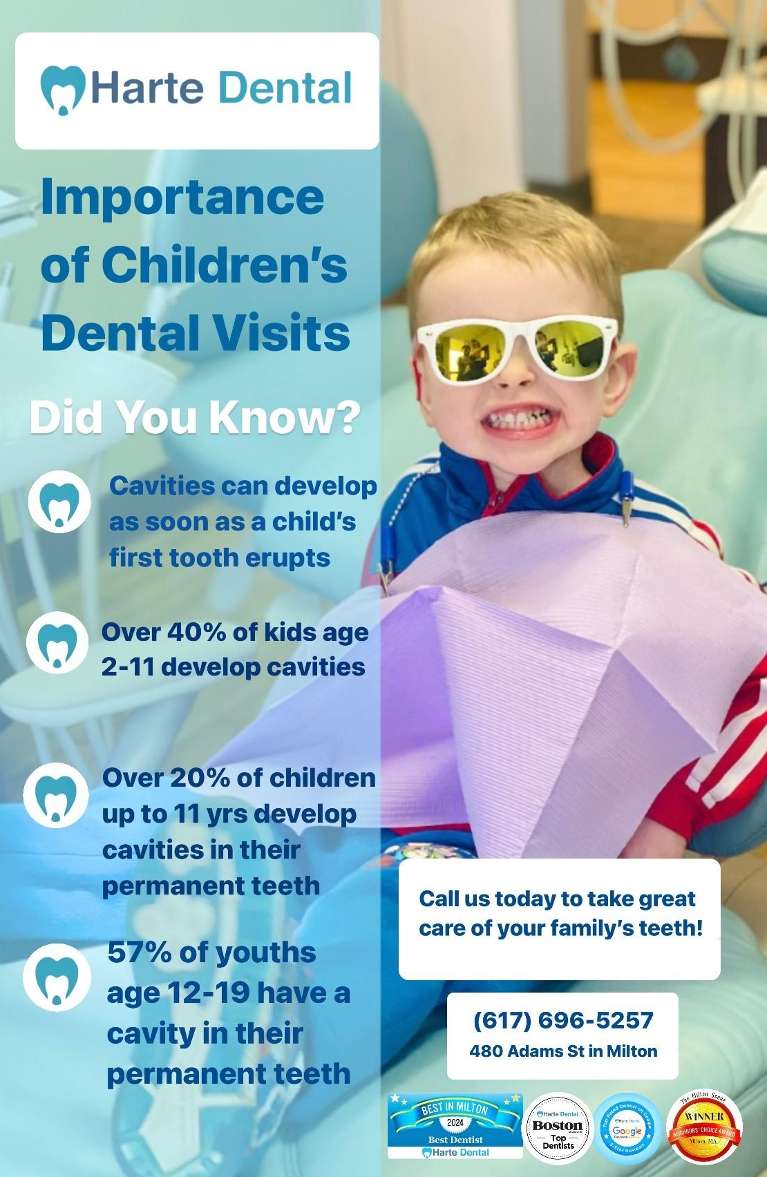
If you are reading this, there is a good chance that you had had a filling on a tooth which had a cavity... Or maybe even have one right now, according to statistics! Untreated cavities can lead to discomfort, and eventually, abscesses (severe infections) under the gums which can spread to other parts of the body and have serious repercussions. But don't worry, we're here to help either way!
Statistics:
According to the National Institute of Dental and Craniofacial Research (NIDCR)...
- 42% of children 2 to 11 years old develop cavities in their primary (baby) teeth
- 21% of children 6 to 11 develop cavities in their permanent teeth.
- Cavities affect 92% of adults 20 to 64 years old.
- Around half of children up to age 11 get cavities, and an overwhelming majority of adults get cavities.
According to the Centers for Disease Control and Prevention (CDC)...
- Among children aged 6 to 8 years, over half (52%) have had a cavity in their primary (baby) teeth.
- Among adolescents aged 12 to 19, more than half (57%) have had a cavity in their permanent teeth.
- Among adults aged 20 and older, about 90% have had at least one cavity.
- 1 in 4 adults aged 20 to 64 currently has at least one cavity.
Why Do Kids Get So Many Cavities?
The enamel on primary (baby) teeth is not as hard as the enamel on the adult teeth that come in next. So, children's teeth are more vulnerable to decay than adult teeth (as bacteria eats away at the enamel). Unfortunately, kids can get cavities as soon as they have teeth! Plus, cavities and infections in baby teeth can spread to the underlying developing permanent teeth.
What Can I Do As A Parent?
It is important to keep your infant’s mouth clean, even before their first tooth erupts. After each feeding, you can gently wipe their gums with a clean, damp cloth.
We recommend bringing your child to our office soon after their first tooth appears, and no later than their first birthday!
As soon as two of their baby teeth touch, begin flossing between their teeth once a day.
You may need to help your child brush and floss their teeth until around age 6.
How to Avoid Cavities at Any Age
Regardless of age, poor oral hygiene and an unhealthy diet can lead to cavities. Daily brushing (around 2 minutes) and flossing (between 2-3 minutes) and regular dental checkups/cleanings are the best ways to prevent cavities. Finally, make sure to drink plenty of water, eat nutritious meals, and limit sugary snacks and drinks!
Call our award-winning team today at (617) 696-5257 to schedule your next cleaning or your first visit! We are proud to have recently earned Best Dentist in Milton 2024 in the Milton Times, along with Top Dentist in Boston Magazine, Favorite Dentist in the Milton Scene, and Neighborhood Favorite on Nextdoor.
Info Retrieved From:
https://www.nidcr.nih.gov/research/data-statistics/dental-caries/children
https://www.cdc.gov/oralhealth/
Centers for Disease Control and Prevention. Vital signs: dental sealant use and untreated tooth decay among US school-aged children. MMWR. 2016;65(41):1141-1145.
Centers for Disease Control and Prevention. Oral Health Surveillance Report: Trends in Dental Caries and Sealants, Tooth Retention, and Edentulism, United States, 1999–2004 to 2011–2016. Atlanta, GA: Centers for Disease Control and Prevention, US Dept of Health and Human Services; 2019. https://www.cdc.gov/oralhealth/publications/OHSR-2019-index.html